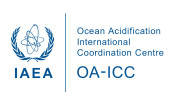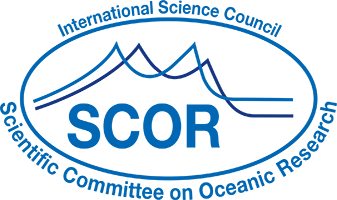News
+ more newsSubCtech - OceanPack™ RACE
Monday, 18 March 2019
| Manufacturer: | SubCtech |
| Instrument/sensor: | OceanPack™ RACE |
| Measurement type: | underway |
| Variable(s): | pCO2 |
| Brief description: | |
| More info: | https://subctech.com/ocean-monitoring/systems/surface/oceanpack-race/ |
| Contact: | Stefan Marx (This email address is being protected from spambots. You need JavaScript enabled to view it.) |
| References: |
Turner Designs - C-sense in situ pCO₂ Sensor
Monday, 18 March 2019
| Manufacturer: | Turner Designs |
| Instrument/sensor: | C-sense in situ pCO₂ Sensor |
| Measurement type: | submersible |
| Variable(s): | pCO2 |
| Brief description: | |
| More info: | https://www.turnerdesigns.com/c-sense-in-situ-pco2-sensor |
| Contact: | This email address is being protected from spambots. You need JavaScript enabled to view it. |
| References: |
University of East Anglia - pCO2 sensor
Monday, 18 March 2019
| Manufacturer: | University of East Anglia |
| Instrument/sensor: | pCO₂ Sensor |
| Measurement type: | underway |
| Variable(s): | pCO2 |
| Brief description: | |
| More info: | |
| Contact: | Ute Schuster (This email address is being protected from spambots. You need JavaScript enabled to view it.) |
| References: | Cooper, D.J., A.J. Watson, and R.D. Ling (1998) Variation of pCO2 along a North Atlantic shipping route (U.K. to the Caribbean): A year of automated observations. Marine Chemistry, 60, 147-164. Schuster, U. and A.J. Watson (2007) A variable and decreasing sink for anthropogenic CO2 in the North Atlantic. Journal of Geophysical Research-Oceans, vol. 112, C1106, doi: 10.1029/2006JC003941. |

Call for applications: POGO-SCOR Visiting Fellowship 2019
Friday, 15 March 2019
The Partnership for Observation of the Global Ocean (POGO) and Scientific Committee on Oceanic Research (SCOR) are pleased to announce that the POGO-SCOR Visiting Fellowship programme for 2019 is now open for applications. The scheme is designed to promote training and capacity development, leading towards a global observation scheme for the ocean, and is aimed at scientists, technicians, graduate students (preferably PhD) and post-doctoral fellows involved in oceanographic work at centres in developing countries and countries with economies in transition. Priority is given to applicants in the early stages of their career development. The fellowship offers the opportunity to visit other oceanographic centres for a short period (1 to 3 months) for training on aspects of oceanographic observations, analyses, and interpretation. It provides financial support to cover the return airfare from the fellow's home country to the host institution, and a contribution towards accommodation and subsistence for the period of the visit.
The deadline for applications is 30 April 2019. For more information and details on how to apply please see: http://ocean-partners.org/pogo-scor-fellowship. All applications should be submitted through http://www.marinetraining.eu/POGOSCOR19. Please e-mail pogoadmin[at]pml.ac.uk should you have any queries and feel free to circulate this announcement to anyone you think might be interested.

Workshop on Underway and sensor CO2 data and metadata quality control procedures, 1-3 April, Sopot, Poland
Monday, 11 March 2019
We are pleased to inform you about a technical workshop on "Underway and sensor CO2 data and metadata quality control procedures" to be held on 1-3 April 2019 at the Institute of Oceanology Polish Academy of Science in Sopot, Poland. The workshop is sponsored by the EU project AtlantOS and EU BONUS INTEGRAL (Integrated carbon and trace gas monitoring for the Baltic Sea) project. The goal of this workshop is to update the participants on the protocols enabling globally coherent quality control of surface ocean CO2 data, using a series of lectures and practicals given in the context of the most comprehensive surface ocean CO2 data set: the Surface Ocean CO2 Atlas (SOCAT; www.socat.info).
Registration is free and on a "first come-first served" basis (max. 20 participants). To register please send an email by 22 March to Maciej Telszewski (This email address is being protected from spambots. You need JavaScript enabled to view it.) and Karol Kuliński (This email address is being protected from spambots. You need JavaScript enabled to view it.) with your name, title and full affiliation, as well as a brief description of your post in relation to the workshop agenda. No travel support is offered to participants. For more information please check the attached announcement and the agenda.

Call for applications: OA-ICC/SCOR training course on best practices for ocean acidification experiments in multi-stressor scenarios, 24-28 June 2019, Monaco
Thursday, 07 March 2019
We would like to let you know that the International Atomic Energy Agency (IAEA) Ocean Acidification International Coordination Centre (OA-ICC) and the Scientific Committee on Oceanic Research (SCOR) Working Group 149 are organizing a training course on best practices for ocean acidification experiments in multi-stressor scenarios. The course will take place on 24-28 June 2019, at IAEA Environmental Laboratories in Monaco. The objectives of this training course are to become familiar with the modes of learning available in the new SCOR WG149 web-based best practice guide (to become available in April 2019). This best practice guide will provide a valuable platform to test methods and best practices for ocean acidification studies within a multi-stressor context that were developed at an IAEA Technical Meeting held in Monaco in June 2017. The course will include both lectures and discussions in plenary sessions and hands-on laboratory sessions in smaller groups to support the online tools. Subjects to be covered include: introduction to multiple-driver studies and to a newly developed online best practices guide for multi-stressor experiments, including a decision support tool, and the MEDDLE (Multiple Environmental Driver Design Lab for Experiments) simulator.
Deadline for applications through competent official authorities: 5 April 2019.
MARIANDA - VINDTA 3C system
Monday, 04 March 2019
| Manufacturer: | MARIANDA |
| Instrument/sensor: | VINDTA 3C system |
| Measurement type: | discrete |
| Variable(s): | DIC; Total Alkalinity |
| Brief description: | Combines the alkalinity titration concept with a simplified extraction unit for coulometric DIC measurements; 3 samples / hour. |
| More info: | https://www.marianda.com/index.php?site=products&subsite=vindta3c |
| Contact: | Ludger Mintrop (This email address is being protected from spambots. You need JavaScript enabled to view it.) |
| References: |
MARIANDA - VINDTA 3S system
Monday, 04 March 2019
| Manufacturer: | MARIANDA |
| Instrument/sensor: | VINDTA 3S system |
| Measurement type: | discrete |
| Variable(s): | Total Alkalinity |
| Brief description: | |
| More info: | https://www.marianda.com/index.php?site=products&subsite=vindta3s |
| Contact: | Ludger Mintrop (This email address is being protected from spambots. You need JavaScript enabled to view it.) |
| References: |

Webinar on the development & validation of a profiling glider pH sensor, 5 March 2019, 4-5 PM CET
Friday, 01 March 2019
We would like to inform you about an upcoming webinar on "The development & validation of a profiling glider pH sensor for high resolution observations of coastal & ocean acidification". On 5 March 2019, 4:00-5:00 PM CET, Elizabeth Wright-Fairbanks of Rutgers University will focus on a recent and ongoing collaborative project that has developed the first integrated underwater profiling glider platform and sensor system for sampling carbonate chemistry throughout the water column of the coastal ocean. This effort contributes to the US Mid-Atlantic Coastal Acidification Network (MACAN). The results presented will demonstrate the ability for gliders to routinely provide high resolution water column data on regional scales that can be applied to acidification monitoring efforts in other coastal regions.
To register for the GoToMeeting webinar, please follow this link:
https://register.gotowebinar.com/register/3742795152214546179

Summer Course on Calibration and Validation of Ocean Color Remote Sensing, 3–28 June 2019, Walpole, ME, USA
Wednesday, 27 February 2019
An intensive four-week, cross-disciplinary, graduate-level course in Optical Oceanography will be offered in June 2019 at the University of Maine’s Ira C. Darling Marine Center in Walpole, Maine, USA. This class is a continuation of the Optical Oceanography course first offered at the Friday Harbor Laboratories in 1985 and since 2001 at the Darling Marine Center. Past graduates are many of today’s leaders in oceanography. The course instructors are: Emmanuel Boss (coordinator), Ivona Cetinic, Curt Mobley, Collin Roesler, Ken Voss, and Jeremy Werdell. A grant for qualified participants will cover the University of Maine tuition, and room & board.
Apply by March 10, 2019, with notification by April 1, 2019. Online application is available at: https://dmc.umaine.edu/ocean-optics-2019-application-form/. For further details see the full announcement at: http://ioccg.org/ocean-optics-summer-class-june2019/
The IOCCP promotes the development of a global network of ocean carbon observations for research through technical coordination and communication services, international agreements on standards and methods, and advocacy and links to the global observing systems. The IOCCP is co-sponsored by the Scientific Committee on Oceanic Research and the Intergovernmental Oceanographic Commission of UNESCO. Read more…
Calendar
|
|
IOCCP meetings, IOCCP-related meetings as well as events related to a wider scope in marine biogeochemistry. |





 Please wait...
Please wait...